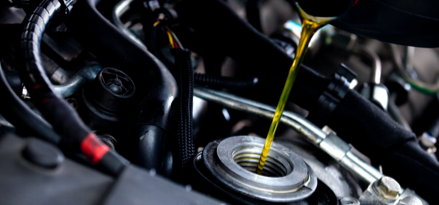
The turbocharge towards better fuel economy
Both on and off the track, turbochargers and superchargers are known for increasing power in high-performance engines. And for often being mistaken for one other.
An engine’s output depends on how much oxygen it can take in to burn fuel and how quickly and efficiently it can convert that heat to mechanical force.
Back in the 1920s, supercharging was developed as a high-performance solution for race cars. On a parallel track, turbocharging was being developed for long-operating diesel engines.
Flashforward one century and a converging mix of fuel economy regulations, greenhouse-gas emissions standards and buyer concerns have driven carmakers to adopt turbos over superchargers.
But this popularity wasn’t boosted overnight. Two decades and billions of dollars have been spent on research and development to make turbochargers lighter, more responsive, and a lot more reliable than their racetrack reputations might suggest.
How are superchargers and turbochargers different?
It might be easier to start with their similarities. Both turbochargers and superchargers use compressors to push air into engines to deliver an extra boost of power.
Their main difference springs from their energy sources. A supercharger depends on the engine for rotation as it is driven mechanically via a belt that runs off the crankshaft or by an electric motor.
Meanwhile, turbochargers use the vehicle’s own velocity and heat energy to spool up a turbine to power a compressor which then pulls in and feeds more air to the engine.
Because a turbocharger turns wasted exhaust into something useful, it is more efficient than a supercharger. However, both create extreme operating conditions which place more stress on engine oil.

The turbocharger’s super-challenge
While engine crankshafts average about 3,000 rpm at highway speeds, the turbocharger shaft can reach speeds up to 200,000 rpm. Hot exhaust gases expose the entire turbine section to searing heat not found in other parts of the engine.
In one sense, turbochargers have always been ‘cool’. In a more visceral sense, they produce engine oil that’s over 200°C!
These high temperatures, more than double the average heat of non-turbo engines, can cause some engine oils to decompose, resulting in engine deposits and diminished performance.
How Mobil 1™ boosts the benefits

Specially formulated to endure the additional stresses encountered in turbochargers, Mobil 1 oils deliver exceptional performance and protection at extreme temperatures, from -40°C to 260°C.

Mobil 1 oils resist breakdown by delivering outstanding thermal and oxidation stability, protection of thrust bearing, varnish control on shaft bushing, and deposit and buildup control on the compressor, compressor seal plate and turbo housing.

Mobil 1 advanced full synthetic motor oil provides proven performance in some of the toughest conditions. It’s why automakers with celebrated turbocharged engines such as Mercedes-AMG and Porsche and supercharged engines such as Corvette use Mobil 1 motor oil as the factory fill oil in some of their vehicle models.



